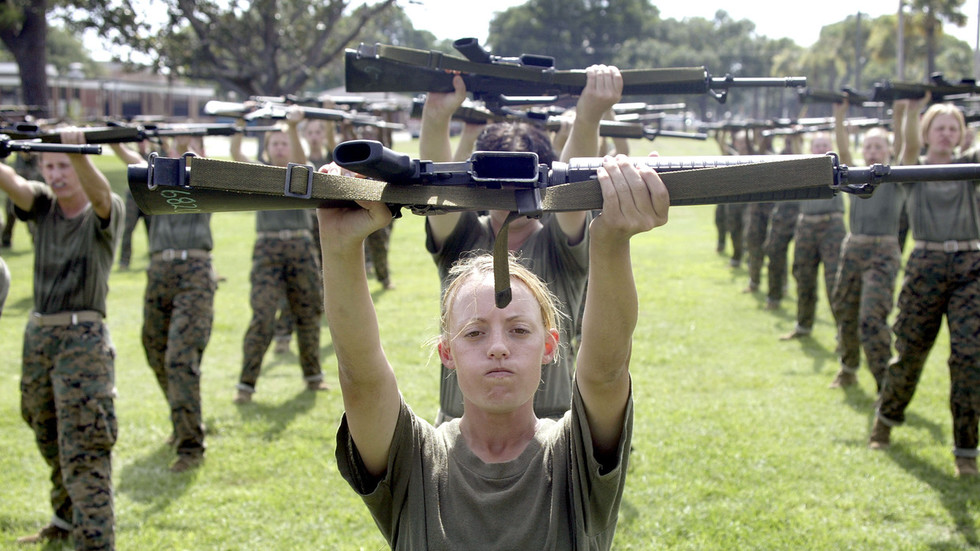
A new study has found that many male soldiers are reluctant or outright opposed to accepting women in Special Forces units

FILE PHOTO. Female Marine Corps recruit goes through close combat training © Getty Images / Scott Olson
Women serving in the US Army Special Operations Forces (ARSOF) continue to face discrimination, sexual harassment and sexism in their male-dominated units, according to a new report published on Monday.
The Pentagon opened all combat jobs to women eight years ago. In a lengthy study conducted in 2021 but released only now, the US Army Special Operations Command (USASOC) found that many male soldiers continue to make “overtly sexist” comments aimed at their female counterparts and express broad aversion to women serving in commando units.
“The idea that women are equally as physically, mentally and emotionally capable as men to effectively perform the majority of jobs within ARSOF is, quite frankly, ridiculous,” one male soldier was quoted as saying in the report. Others have also said they’d quit before serving on a team with a female, with some noting that such a situation could disrupt their marriage by sparking jealousy from their wives.
The study did find that differing opinions were also prevalent, with one male soldier stating that “women belong in ARSOF and they play a vital role.” That same soldier noted, however, that females would “best be used in non-direct action roles” unless they can meet male physical standards.
Commenting on the report, Command Sgt Maj JoAnn Naumann told reporters on Monday that most of the sexist attitudes came from “senior noncommissioned officers” and suggested that the issue could be “generational.”

Read more
The study also found that nearly half of the female service members in USASOC had experienced equipment fitting challenges, as the standard issued body armor, helmets and ruck systems have proven to be too large for women under 165cm tall.
The majority of female soldiers surveyed in the study also claimed to have experienced sexual harassment. However, only 30% said the issue was a challenge, and even fewer said they were willing to report it. The women said they feared reprisal and didn’t trust commanders to take action. Instead, the female officers say they’ve been told to develop a “thick skin” to “survive in a man’s world.”
The report makes 42 recommendations to solve the challenges facing women serving in ARSOF, including providing increased training and messages to the force to expand awareness of sexual harassment, mentorship, health care and other issues.




